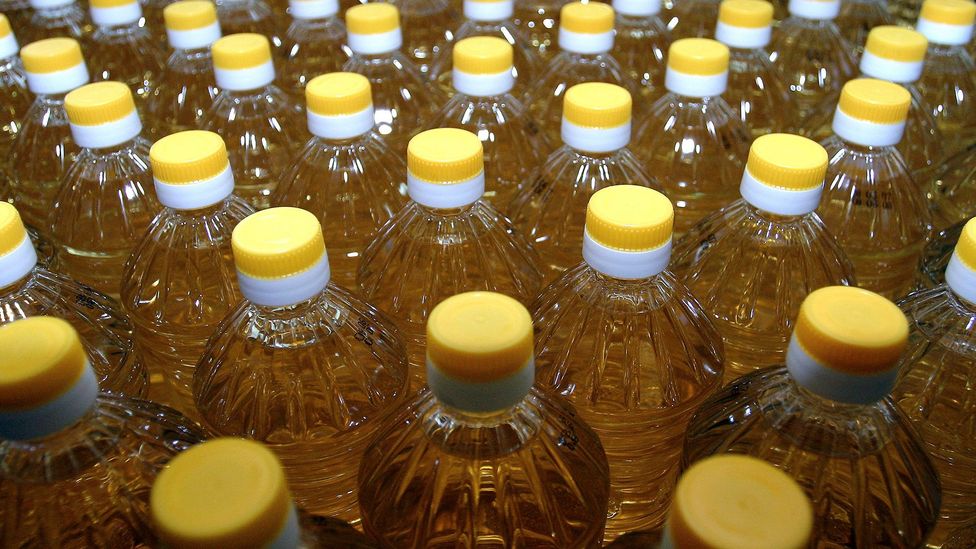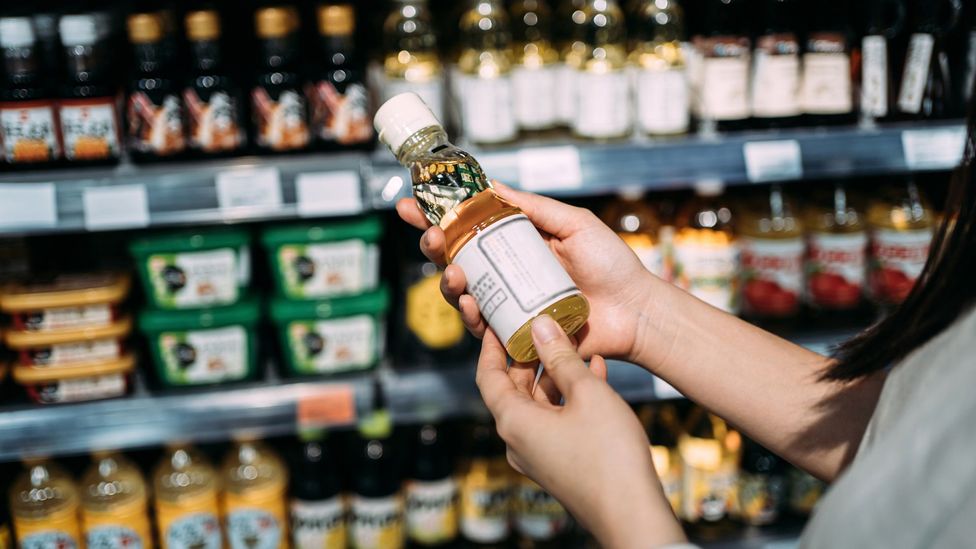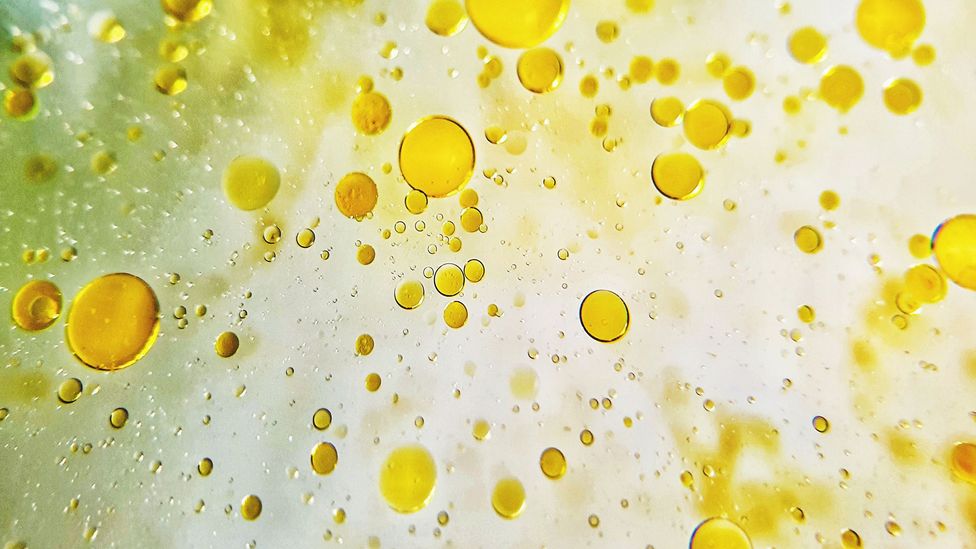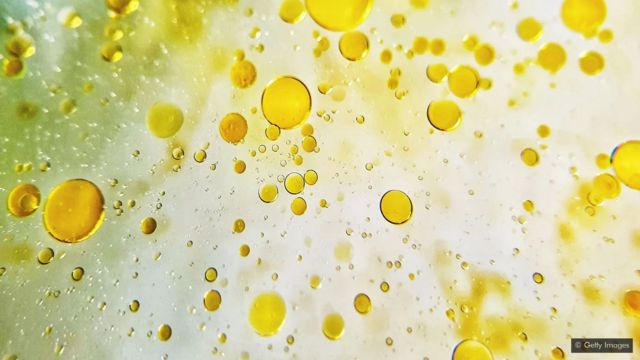Mục lục
Which cooking oil is the healthiest?

Cooking oils are a kitchen staple. But there’s a lot of conflicting information regarding how healthy each of them are.
With so many on the shelves – from coconut to olive, vegetable to canola, avocado to rapeseed oil – how do we know which ones to use, and if we should be avoiding any altogether?
Oils used for cooking tend to get their name from the nut, seeds, fruits, plants or cereals they’re extracted from, either by methods of crushing, pressing, or processing. They’re characterised by their high fat content, including saturated fat, monounsaturated and polyunsaturated fatty acids.
In recent years, coconut oil, which is around 90% saturated fat, has become the latest trendy “superfood”. It’s been hailed as a superfood (including that it’s less likely to be stored in the body as fat and more likely to be expended as energy) – but one Harvard University epidemiologist calls it “pure poison”.
Consuming too much saturated fat – more than 20g for women and 30g for men per day, according to UK guidelines – makes the body produce cholesterol in our bodies that increases the risk of heart disease.
All fat molecules are made of chains of fatty acids, which are either held together with single bonds (saturated) or double bonds (unsaturated). There are three types of fatty acids: short, medium and long chain. Short and medium chain fatty acids are absorbed directly into the bloodstream and used for energy, but long chain fatty acids are transported to the liver, which raises blood cholesterol levels.
“Coconut oil enjoyed popularity three or four years ago, when there were claims it had a special effect,” says Alice Lichtenstein, Gershoff professor of nutrition science and policy at Tufts University in Massachusetts, US.

Vegetable oils usually contain differing amounts of saturated fat, monounsaturated and polyunsaturated fatty acids (Credit: Getty Images)
“But when you look at studies that compared it with other oils, the results showed it’s high in saturated fat, and no clinical trial supported any initial claims.”
Most randomised controlled trials show that coconut oil increases levels of harmful cholesterol low, density lipoprotein (LDL), which is linked with heart disease and stroke, but it also raises beneficial cholesterol, high density lipoprotein (HDL), which carries LDL away from the bloodstream.
One explanation as to why a food so high in saturated fat could increase HDL cholesterol is because it contains a relatively high amount of lauric acid, which has been found to raise levels of HDL in the blood far more than it does LDL .
But Taylor Wallace, an adjunct professor in the Department of Nutrition and Food Studies at George Mason University in Virginia, argues lauric acid is not as healthy as some claims suggest. It is categorised as a C12 fatty acid, meaning it has 12 carbon atoms, and that puts it at the limit of the definition of a medium chain fatty acid.
“C12s are like long chain fatty acids that got categorised into medium chain,” says Wallace. “About 70% of C12s act as long chain fatty acids, which are transported to the liver.” Longer chain fatty acids are more likely to be stored in the liver as fat and could, over time, cause health issues such as nonalcoholic fatty liver disease.
Instead, experts advise opting for an oil lower in saturated fat, and higher in other types of fats that are healthier in moderation. Polyunsaturated fat, including omega 3 and omega 6, and monounsaturated fat have been found to lower cholesterol levels and provide essential fatty acids and vitamins. They’re found in many different types of vegetable oils, although the exact amount depends both on the plant and the technology process used during their production.

Replacing saturated fats such as butter with olive oil could lead to reduced risk of developing heart disease (Credit: Getty Images)
“Most studies indicate that foods higher in monounsaturated and polyunsaturated fats are associated with lower risk of cardiovascular disease,” says Lichtenstein. “It’s recommended we replace sources of unsaturated fat with polyunsaturated fat, primarily plant-based oils, and nuts and seeds,” she says.
One observational study associated replacing saturated fat with olive oil, for example, with a lower risk of heart disease. Substituting butter, margarine, mayonnaise or dairy fat with olive oil reduced the risk by 5 to 7%.
Marta Guasch-Ferre, author of the study and a research scientist Harvard University’s TH Chan School of Public Health’s nutrition department in Boston, analysed the health and diets of more than 100,000 people over 24 years, and found that those with higher intake of all types of olive oil had a 15% lower risk of heart disease.
Olive oil’s health benefits can partly be attributed to its monounsaturated fatty acids, which contain vitamins and minerals, and polyphenols, micronutrients derived from plants.
“But it’s not just that you’re adding olive oil into the diet, but that olive oil is substituting other unhealthier fats,” says Guasch-Ferre.
Olive oil, which is made by crushing olives and separating the oil from their pulp, is renowned for being the healthiest of plant oils. One review of research found olive oil has beneficial effects on gut microbiota and heart disease, and that extra virgin olive oil can be beneficial in preventing cancer and type 2 diabetes.

The smaller short chain and medium chain fatty acids in some vegetable oils are dissolved in the blood rather than being stored in the liver (Credit: Getty Images)
“The monounsaturated fatty acids and compounds found in olive oil help prevent noncommunicable diseases, not through any special mechanisms, but because our body needs them,” says Francisco Barba, professor at the University of Valencia’s preventive medicine and public health department in Spain.
Olive oil is synonymous with the Mediterranean diet, which is high in fruit, vegetables and legumes, and low in saturated fat, and is associated with a reduced risk of heart disease, despite the high fat content.
“What makes the Mediterranean diet different from other types of healthy diets is olive oil,” Guasch-Ferre says. “Most other components – nuts, fruit and vegetables – are parts of numerous diets, including plant-based.”
However, some research suggests these health benefits could be partly driven by other components in the diet, rather than olive oil. One review of evidence found that the only benefit of olive oil independent of the Mediterranean diet was its ability to raise levels of beneficial cholesterol HDL.
Researchers reviewed 30 studies where participants’ diets were altered to test the effects of olive oil, and found that the Mediterranean diet led to lower glucose levels and higher LDL compared to the Western diet. Intervening that diet with olive oil, where it had a high polyphenol content, further increased HDL.
However, consuming olive oil by following the Mediterranean diet was associated with improved glucose levels, which is associated with a greater risk of developing type 2 diabetes if it is too high. It also reduced the level of triglycerides, a type of fat in the blood, and LDL cholesterol levels.
These studies tested numerous types of olive oil, but some research has found that extra virgin olive oil is associated with the most health benefits, including a possible lower risk of heart disease.

Experts advise opting for an oil lower in saturated fat, and higher in other types of fats that are healthier in moderation (Credit: Getty Images)
Extra virgin olive oil is rich in antioxidants and vitamin E, and researchers have found that it’s better at protecting against LDL cholesterol than other types of olive oil. Other types of olive oil are processed after the oil is extracted, which causes them to lose some nutritional qualities.
Extra virgin olive oil, however, has a lower smoke point, which means it starts to smoke at a lower temperature, and in recent years there have been concerns that this could release harmful compounds, and that some of its benefits are lost through the heating process.
“Extra virgin olive oil is especially beneficial when it’s not cooked, but even under cooking it has a very high percentage of monosaturated fatty acids,” says Barba.
Recent studies have shown that extra virgin olive oil is safe to use for cooking. Researchers carried out a number of experiments monitoring extra virgin olive oil as it cooked at 120C (248F) and (338F) on a pan for different lengths of time. They found that temperature, but not time, had some effect on the polyphenol content in the oil.
In 2011, the European Food Safety Authority concluded that makers of olive oil can say it reduces oxidative stress – an imbalance of free radicals and antioxidants in the body – and protects cells and LDL cholesterol from oxidative damage, which can age cells. The researchers carrying out the experiments found that extra virgin olive oil used for cooking still falls within the guidelines for the health claim.
Lichtenstein argues that olive oil doesn’t have any unique properties aside from what you’d normally expect from an oil high in monounsaturated and polyunsaturated fats. But what is clear is that the evidence supports using this and other vegetable oils instead of saturated fats, but to limit our intake of oil in general.
“The message isn’t to add lots of oil because we think it’s good for us, because that’s just adding lots of calories,” she says.
“Once we shift the balance of saturated fat to unsaturated fatty acids, we should then be able to choose the oil we prefer.”
—
Nên chọn loại dầu ăn nào để tốt cho sức khỏe?

SCIENCE PHOTO LIBRARY
Dầu ăn có chứa nhiều chất béo và calories, nhưng hóa chất trong dầu và tác động của nó lên sức khỏe là rất khác nhau, tùy theo sản phẩm ta chọn lựa.
Dầu ăn là nguyên liệu cho bếp nấu, nhưng có rất nhiều thông tin mâu thuẫn nhau về tác dụng của thứ nguyên liệu này đối với sức khỏe chúng ta.
Với quá nhiều các sản phẩm dầu ăn ngoài cửa hàng – từ dầu dừa đến dầu olive, dầu thực vật đến dầu cải, dầu bơ đến dầu hạt cải (Rapsöl) – ta nên sử dụng các loại dầu này ra sao, và liệu ta có nên tránh sử dụng loại nào không?
Dầu ăn dùng để nấu thường được đặt tên dựa theo các loại hạt, trái cây hoặc cây hoặc loại ngũ cốc dùng để chiết xuất ra dầu đó, dù là dùng phương thức nghiền, ép hay qua chế biến.
Dầu ăn được phân biệt dựa trên hàm lượng chất béo cao, trong đó có chất béo bão hòa, chất béo không bão hòa đơn và axit béo không bão hòa đa.
Trào lưu dầu dừa
Trong vài năm qua, dầu dừa, có chứa khoảng 90% lượng chất béo bão hòa, đã trở thành trào lưu mới nhất của “siêu thực phẩm”.
Dầu dừa được ca ngợi là siêu thực phẩm ( trong đó có tính chất là loại dầu này có vẻ như không tích trữ thành chất béo trong cơ thể và có vẻ như sẽ được cơ thể dùng làm năng lượng) – nhưng một nhà dịch tễ học từ Đại học Havard gọi loại dầu này là “chất độc tinh khiết”.
Tiêu thụ quá nhiều chất béo bão hòa – trên 20g với phụ nữ và 30g với nam giới mỗi ngày, theo hướng dẫn của Anh Quốc – sẽ khiến cơ thể sản xuất ra cholesterol, làm tăng nguy cơ bị bệnh tim mạch.
Tất cả phân tử chất béo đều cấu thành từ các chuỗi axit béo, và chúng liên kết với nhau bằng liên kết đơn (bão hòa) hay liên kết đôi (không bão hòa).
Có ba loại axit béo: chuỗi ngắn, chuỗi trung bình và chuỗi dài.
Axit béo chuỗi ngắn và trung bình được hấp thụ trực tiếp vào máu và dùng làm năng lượng, nhưng axit béo chuỗi dài được chuyển đến gan, từ đó làm tăng nồng độ cholesterol trong máu.
“Dầu dừa trở nên phổ biến trong khoảng ba đến bốn năm trước, khi có thông tin cho rằng nó đem lại tác dụng đặc biệt,” Alice Lichtenstein, giáo sư cao cấp về khoa học và chính sách dinh dưỡng tại Đại học Tufts ở Massachusetts, Hoa Kỳ, nhận định.

GETTY IMAGES Dầu thực vật thường chứa lượng chất béo bão hòa, chất béo bão hòa đơn và axit béo bão hòa đa với hàm lượng khác nhau
“Thế nhưng khi xem các nghiên cứu so sánh nó với các loại dầu khác, ta thấy là loại dầu này có lượng chất béo bão hòa cao, và không có thử nghiệm lâm sàng nào bổ trợ cho bất cứ tuyên bố nào cả.”
Hầu hết các thử nghiệm ngẫu nhiên có kiểm soát cho thấy dầu dừa làm tăng hàm lượng choresterol ‘xấu’ – LDL (low density lipoprotetin) – vốn có liên hệ với bệnh tim và đột quỵ, nhưng nó cũng tăng hàm lượng cholestrol ‘tốt’ – HDL (High density lipoprotein) – giúp đẩy LDL khỏi mạch máu.
Một giải thích vì sao loại thực phẩm có hàm lượng chất béo bão hòa lại có thể làm tăng cholesterol tốt HDL, đó là vì nó chứa lượng axit lauric khá cao. Đây là loại axit làm tăng hàm lượng HDL trong máu nhiều hơn so với LDL.
Nhưng Taylor Wallace, phó giáo sư từ Khoa Nghiên cứu Thực phẩm và Dinh dưỡng tại Đại học George Mason ở Virginia tranh luận rằng axit lauric không tốt cho sức khỏe như một số ý kiến nói. Nó được phân loại là axit béo C12, nghĩa là nó có 12 nguyên tử carbon, và tính chất này xếp nó vào nhóm axit béo chuỗi trung bình.
“Các C12 cũng giống như axit béo chuỗi dài được phân loại thành chuỗi trung bình,” Wallace lý giải. “Khoảng 70% các C12 có tác dụng như axit béo chuỗi dài, chúng được vận chuyển tới gan.”
Chuỗi axit béo càng dài thì chúng càng có khả năng tích trữ trong gan ở dạng chất béo và qua thời gian, có thể gây ra tác động sức khỏe như bệnh gan nhiễm mỡ không liên quan tới bia rượu.
Thay vào đó, các chuyên gia khuyên ta nên chọn loại dầu ăn có hàm lượng chất béo bão hòa thấp hơn trong lúc có các thành phần chất béo khác cao hơn, bởi như vậy sẽ tốt hơn cho sức khỏe nếu ta dùng với mức độ trong tầm kiểm soát.
Người ta phát hiện chất béo không bão hòa đa, trong đó gồm cả omega 3 và omega 6, và chất béo không bão hòa đơn, có hàm lượng cholesterol thấp hơn và cung cấp những loại axit béo cần thiết và vitamin. Chúng có mặt trong rất nhiều loại dầu thực vật khác nhau, dù hàm lượng chính xác còn tùy thuộc vào loại cây và công nghệ chế biến khi sản xuất các loại dầu ăn này.

GETTY IMAGES Thay thế chất béo bão hòa như bơ bằng dầu olive có thể giúp làm giảm nguy cơ bị bệnh tim mạch
“Hầu hết nghiên cứu cho thấy thực phẩm có hàm lượng chất béo không bão hòa đa và chất béo không bão hòa đơn cao thì có liên quan tới mức độ rủi ro mắc bệnh tim thấp hơn,” Lichtenstein cho biết. “Cho nên chúng ta được khuyên thay thế một số nguồn chất béo không bão hòa bằng chất béo không bão hòa đa, chủ yếu có trong dầu thực vật, và các loại hạt,” bà chia sẻ.
Một nghiên cứu quan sát liên quan đến việc thay thế chất béo bão hòa bằng dầu olive chẳng hạn, cho thấy rủi ro bị bệnh tim thấp hơn. Thay thế bơ, bơ thực vật margarine, mayonnaise hoặc chất béo làm từ sữa động vật bằng dầu olive giúp giảm nguy cơ mắc bệnh từ 5-7%.
Marta Guasch-Ferre, tác giả của nghiên cứu và là nhà khoa học nghiên cứu tại Khoa Dinh dưỡng thuộc Trường TH Chan về Sức khỏe Cộng đồng thuộc Đại học Havard tại Boston, đã phân tích sức khỏe và chế độ dinh dưỡng của hơn 100.000 người trong 24 năm, và nhận thấy những người dùng các loại dầu olive nhiều hơn thì giảm được nguy cơ bị bệnh tim 15%.
Tác dụng tốt cho sức khỏe của dầu olive có thể một phần là vì thành phần axit béo không bão hòa đơn trong dầu, vốn có chứa các loại vitamin và khoáng chất và các polyphenol, vi dưỡng chất từ thực vật.
“Nhưng không phải chỉ bởi bạn bỏ thêm dầu olive vào bữa ăn, mà là bởi dầu olive được dùng thay thế cho các loại chất béo không tốt cho sức khỏe,” Gausch-Ferre giải thích.
Dầu olive, được làm từ quả olive nghiền nát rồi đem tách dầu ra khỏi phần thịt quả đã nghiền nhuyễn, nổi tiếng là loại cây cung cấp dầu tốt nhất cho sức khỏe. Một tổng hợp nghiên cứu cho thấy dầu olive có tác dụng tốt với các vi sinh trong ruột và bệnh tim mạch, và loại dầu olive tuyệt đối tinh khiết cho thể giúp ngăn ngừa bệnh ung thư và tiểu đường tuýp 2.

GETTY IMAGES Các axit béo chuỗi ngắn và chuỗi trung bình có trong một số loại dầu thực vật sẽ hòa tan trong máu thay vì tích trữ ở gan
“Các axit béo không bão hòa đơn và hợp chất có trong dầu olive giúp tránh các bệnh không truyền nhiễm, không phải nhờ cơ chế gì đặc biệt mà là vì cơ thể ta cần chúng,” Francisco Barba, giáo sư từ khoa sức khỏe cộng đồng và y tế dự phòng thuộc Đại học Valencia, Tây Ban Nha, cho biết.
Dầu olive thường đồng nghĩa với chế độ ăn Địa Trung Hải, ngh ĩa là nhiều trái cây, rau và đậu gà, ít chất béo bão hòa, và có liên hệ tới việc giảm nguy cơ bị bệnh tim dù có lượng chất béo khá cao.
“Điều khiến chế độ dinh dưỡng Địa Trung Hải khác các chế độ dinh dưỡng lành mạnh khác là dầu olive,” GUasche-Ferre nhận định. “Hầu hết các thành phần khác như đậu, trái cây, rau củ là thành phần có trong nhiều chế độ ăn, trong đó có chế độ ăn từ thực vật.”
Tuy nhiên, một số nghiên cứu cho rằng tác dụng tốt cho sức khỏe có thể do một số thành phần khác trong chế độ dinh dưỡng đem lại chứ không phải là nhờ dầu olive.
Một tổng hợp các bằng chứng cho thấy tác dụng duy nhất của dầu olive, không liên quan đến chế độ dinh dưỡng Địa Trung Hải, là nó có khả năng tăng hàm lượng cholesterol ‘tốt’ HDL.
Các nhà nghiên cứu tổng hợp 30 đề tài trong đó chế độ dinh dưỡng của người tham gia nghiên cứu được thay đổi để đo lường tác dụng của dầu ôliu, và nhận thấy chế độ ăn Địa Trung Hải dẫn đến lượng đường glucose thấp hơn và lượng LDL cao hơn so với chế độ ăn kiểu Tây. Thêm dầu ôliu vào chế độ ăn đó, vốn có hàm lượng polyphenol cao, sau đó đã giúp tăng cường hàm lượng HDL.
Tuy nhiên, ăn dầu olive theo chế độ ăn Địa Trung Hải cũng liên quan đến lượng đường glucose tăng lên, vốn có liên quan đến rủi ro gây tiểu đường tuýp 2 nếu lượng đường này tăng quá cao. Nó cũng giúp làm giảm hàm lượng triglycerides, một loại chất béo trong máu, và mức choresterol LDL.
Các nghiên cứu này thử nghiệm một loạt các loại dầu olive, nhưng một số nghiên cứu cho thấy dầu olive tuyệt đối tinh khiết đem đến lợi ích tốt nhất cho sức khỏe, trong đó có việc tạo mức nguy cơ thấp hơn đối với bệnh tim mạch.

GETTY IMAGES Các nhà nghiên cứu cho rằng việc sử dụng loại dầu ăn có lượng chất béo bão hòa thấp và lượng các loại chất béo khác cao hơn thì sẽ tốt hơn cho sức khỏe nếu ta dùng có kiểm soát
Dầu olive tuyệt đối tinh khiết rất giàu chất chống ôxy hóa và vitamin E, và các nhà nghiên cứu nhận thấy nó bảo vệ cơ thể chống lại cholesterol LDL hiệu quả hơn so với các loại dầu olive khác. Các loại dầu olive khác được chế biến sau khi dầu tuyệt đối tinh khiết đã được chiết xuất, do đó chúng mất đi một số giá trị dinh dưỡng.
Tuy nhiên, dầu olive tuyệt đối tinh khiết lại có điểm khói thấp, nghĩa là loại dầu này bắt đầu bốc khói ở nhiệt độ thấp, và trong vài năm vừa qua người ta quan ngại tính chất này có thể tạo ra các hợp chất độc hại, và một số ích lợi của dầu cũng biến mất khi ta làm nóng dầu.
“Dầu olive tinh khiết cực kỳ có lợi khi ta không dùng nó để nấu, nhưng thậm chí dù ta có sử dụng dầu này để nấu thì nó có chứa hàm lượng rất cao các axit béo bão hòa đơn,” Barba giải thích.
Các nghiên cứu gần đây cho thấy dầu olive tuyệt đối tinh khiết có thể sử dụng để nấu ăn một cách an toàn.
Các nhà nghiên cứu tiến hành một số thí nghiệm xem xét dầu tuyệt đối tinh khiết nấu ở nhiệt độ 120 độ C và 170 độ C trong chảo dầu với các quãng thời gian dài ngắn khác nhau. Họ nhận thấy chính là nhiệt độ chứ không phải thời gian đã tác động lên thành phần polyphenol trong dầu.
Năm 2011, Cơ quan An toàn Thực phẩm Châu u kết luận rằng các nhà sản xuất dầu olive có thể nói dầu làm giảm áp lực ôxy hóa – tức là sự mất cân bằng của các gốc tự do và chất chống oxy hóa trong cơ thể – và bảo vệ tế bào cùng cholesterol LDL khỏi bị nguy hại do quá trình oxy hóa gây ra làm tế bào già đi.
Các nhà nghiên cứu tiến hành thí nghiệm cũng phát hiện ra dầu olive tuyệt đối tinh khiết khi dùng để nấu sẽ nằm trong phạm vi hướng dẫn về an toàn cho sức khỏe.
Lichtenstein nói rằng dầu olive chẳng có tính chất gì độc đáo ngoại từ những thứ mà bạn thường sẽ thấy có ở loại dầu có hàm lượng nhiều chất béo không bão hòa đơn và chất béo không bão hòa đa.
Nhưng rõ ràng là có những bằng chứng ủng hộ việc sử dụng loại dầu này và các loại dầu khác thay cho chất béo bão hòa, tất nhiên là phải đi kèm với việc chúng ta phải giảm mức dầu ăn tiêu thụ.
“Thông điệp ở đây là không phải cứ rưới thật nhiều dầu vào là tốt, bởi làm thế có nghĩa là ta đã xối thêm vào rất nhiều calories,” bà nói.
“Một khi ta chuyển sự cân bằng từ axit béo bão hòa sang axit béo không bão hòa, khi ấy ta nên chọn loại dầu ta thích.”
Bài tiếng Anh đã đăng trên BBC Future.
